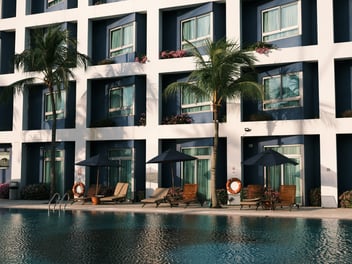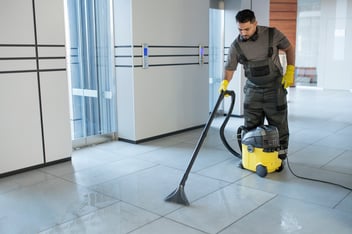The Importance of Ongoing Education for Facility Management Teams
In the hospitality industry, staying ahead of the curve is not just a luxury but a necessity. One of the most impactful ways for facility management teams in the hospitality sector to remain knowledgeable about industry trends and enhance their skill set is through ongoing education and training. Here are the top five benefits of investing in ongoing learning for facility management teams in all types of hospitality facilities:
1. Adaptability to Technological Advancements
The hospitality industry is witnessing rapid technological advancements, and facility management is no exception. Continuous education and training equip teams with the knowledge and skills to integrate cutting-edge technologies, such as intelligent building systems, energy-efficient solutions, and automated maintenance tools. Staying updated ensures facilities operate seamlessly, enhancing guest experiences and operational efficiency.
2. Enhanced Operational Efficiency
A well and consistently trained facility management team is a more efficient one. Ongoing education helps staff learn new techniques, best practices, and industry-specific methodologies, which can significantly improve their ability to handle day-to-day operations. Whether streamlining maintenance processes, optimizing resource utilization, or implementing sustainable practices, continuous education empowers facility managers to make informed decisions that positively impact the bottom line.
3. Improved Guest Satisfaction
The guest experience is at the heart of the hospitality industry, and facility management plays a crucial role in shaping it. Investing in the ongoing education of facility management teams ensures that facilities are well-maintained, safe, and aesthetically pleasing. Staff with up-to-date knowledge can promptly address issues, contributing to a positive guest experience. Satisfied guests are more likely to return and recommend the establishment to others, fostering long-term success.
4. Risk Mitigation and Compliance
Compliance with industry regulations and standards is paramount in the hospitality sector. Facility managers must navigate a complex landscape of safety codes, environmental regulations, and building standards. Continuous education ensures teams stay informed about the latest legal requirements and industry standards, reducing non-compliance risk. This not only protects the reputation of the establishment but also minimizes legal liabilities.
5. Career Advancement and Employee Retention
Offering continuing education and training opportunities demonstrates a commitment to employee development. This, in turn, fosters a positive work environment and boosts employee morale. When staff members feel valued and supported in their professional growth, they are likelier to stay with the organization. Moreover, the acquired skills and knowledge open doors for career advancement within facility management, creating a win-win situation for employees and the hospitality organization.
Continuous education and training are powerful tools that propel facility management teams in the hospitality industry toward success. The benefits are significant, from technological adaptability to enhanced operational efficiency, ultimately contributing to a thriving and sustainable hospitality business. As the industry continues to evolve, the investment in ongoing learning becomes beneficial and imperative for those aiming to stay at the forefront of the competitive hospitality landscape.
.png?width=268&height=52&name=f1-logo2%20(1).png)



